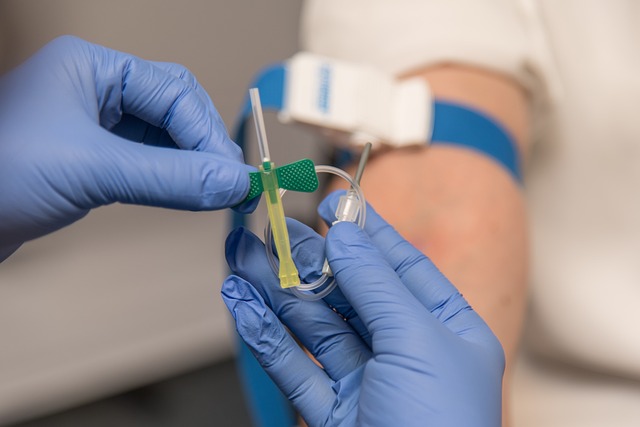Oregon's civil commitment law involves a multi-stage process starting with professional evaluation for danger to self or others. A court petition initiates formal commitment with hearings, evaluations, and reviews. Pre-trial proceedings include assessments and probable cause hearings. During trial, a judge decides on commitment or release based on plaintiff's mental disorder and defense challenges. Appeals are available at each stage, ensuring fairness. Post-commitment care plans and regular reviews lead to eventual release with collaborative reintegration planning.
Oregon’s civil commitment framework is a multifaceted process designed to balance public safety with individual rights. This article delves into the intricate stages of civil commitment in Oregon, from understanding the legal basis to post-commitment care. We explore key players and procedures at each stage, including initiation, pre-trial proceedings, trial phase, court decisions, and release considerations. By understanding these civil commitment stages in Oregon, readers gain valuable insights into this complex yet crucial aspect of the state’s justice system.
- Understanding Oregon's Civil Commitment Law
- Initiation: When and How It Begins
- Pre-Trial Proceedings: Key Players and Steps
- Trial Phase: Presenting Cases and Arguments
- Court Decisions: Options and Appeals
- Post-Commitment Care and Release Considerations
Understanding Oregon's Civil Commitment Law

Oregon’s civil commitment law is a multi-stage process designed to balance public safety with an individual’s rights. The procedure begins with an initial evaluation, where professionals assess whether an individual poses a danger to themselves or others. If the criteria are met, a petition is filed in court, initiating the formal commitment process.
This legal framework navigates through several stages, including hearings, evaluations, and reviews, ensuring a comprehensive understanding of the individual’s mental health status and treatment needs. Each stage aims to provide a fair and transparent process while adhering to Oregon’s strict guidelines for civil commitment, ultimately facilitating appropriate care and support for those in need.
Initiation: When and How It Begins

In Oregon, the process of civil commitment begins when an individual is deemed a danger to themselves or others due to mental illness or addiction. This initiation stage involves a comprehensive assessment conducted by qualified professionals, typically within a hospital or community mental health setting. If the person meets the criteria for involuntary commitment, a petition is filed with the court, marking the official start of the civil commitment procedure.
The process unfolds in several stages, each carefully navigating the rights and needs of the individual while ensuring public safety. This structured framework guides Oregon’s civil commitment process, allowing for a balanced approach to managing severe mental health crises.
Pre-Trial Proceedings: Key Players and Steps

In Oregon’s civil commitment procedural framework, pre-trial proceedings play a pivotal role in ensuring fairness and due process for individuals facing potential commitment. These stages involve several key players and steps that are crucial to the entire process. First, the assessment team, consisting of mental health professionals, evaluates the individual to determine if they meet the statutory criteria for civil commitment. This includes examining their mental condition, ability to care for themselves, and risk to self or others.
If the initial evaluation suggests a need for commitment, the case is referred to a court-appointed commissioner who conducts a probable cause hearing. During this hearing, evidence is presented, and witnesses may be called to testify. The commissioner then makes a decision on whether there’s sufficient cause to proceed with civil commitment proceedings. This careful navigation through pre-trial stages ensures that all parties involved have a clear understanding of the accusations and potential outcomes, setting the stage for a fair and just process in Oregon’s civil commitment framework.
Trial Phase: Presenting Cases and Arguments

During the trial phase of Oregon’s civil commitment process, both parties have the opportunity to present their cases and arguments before a judge. This stage is crucial as it determines whether an individual will be committed to a treatment facility or released back into the community. The plaintiff, typically a family member or guardian, must prove that the accused suffers from a mental disorder and poses a danger to themselves or others. They gather evidence, witness testimonies, and expert opinions to support their case.
The defense, on the other hand, aims to challenge the allegations by presenting alternative explanations and questioning the methodology used in assessments. They advocate for the individual’s rights while ensuring that all procedures adhere to Oregon’s civil commitment stages. The judge carefully evaluates all evidence, considers arguments from both sides, and ultimately makes a decision based on whether the standards for civil commitment are met.
Court Decisions: Options and Appeals

In Oregon, court decisions play a pivotal role in shaping the civil commitment process, offering various options and avenues for appeals. Throughout the civil commitment stages, individuals have the right to challenge their commitment, whether it’s through a motion for new trial, appeal, or writ of habeas corpus. These legal mechanisms allow for a thorough review of the case, ensuring fairness and due process.
The Oregon judicial system provides multiple layers of appeal, enabling those committed to civil institutions to seek higher court reviews. Each decision made during the commitment process must adhere to strict legal standards, with judges considering evidence, expert opinions, and the individual’s best interests. This comprehensive approach ensures that commitments are based on sound legal grounds and protect the rights of all involved parties.
Post-Commitment Care and Release Considerations

After completion of the civil commitment process in Oregon, individuals enter a crucial phase focused on post-commitment care and eventual release. This stage involves meticulous planning to ensure a successful transition back into the community. Mental health professionals play a pivotal role in developing individualized treatment plans tailored to each person’s unique needs. These plans often include ongoing therapy, medication management, and support services to address any co-occurring disorders or underlying conditions that contributed to their initial commitment.
The goal is to facilitate a smooth reintegration into society while minimizing the risk of relapse. Regular reviews and assessments help track progress and adjust care plans accordingly. Release considerations are an integral part of this process, involving collaborative efforts between treatment providers, legal representatives, and the committed individual. It requires careful evaluation of stability, housing arrangements, and support systems in place to ensure a safe and supportive environment for continued recovery.






